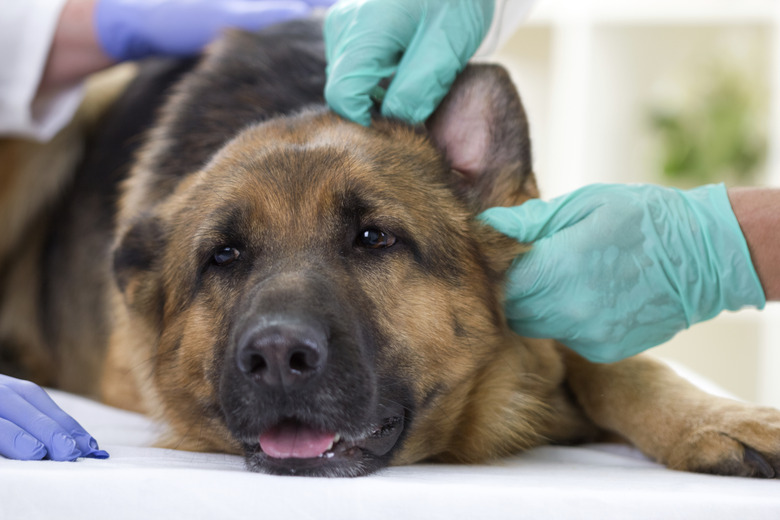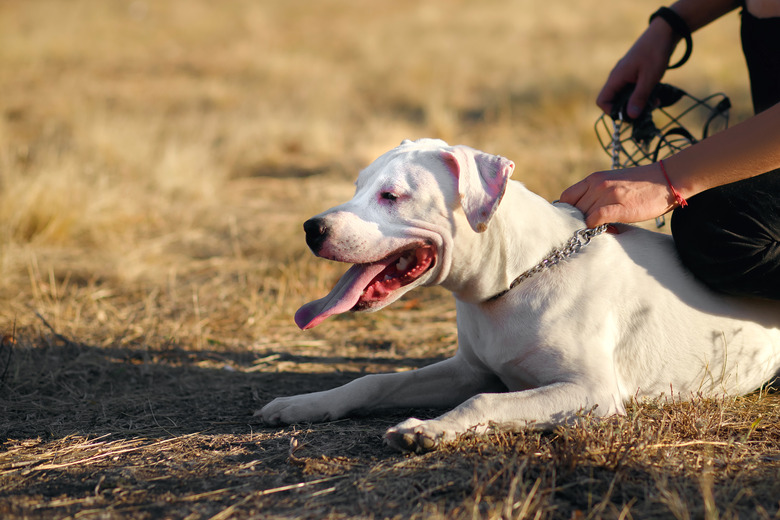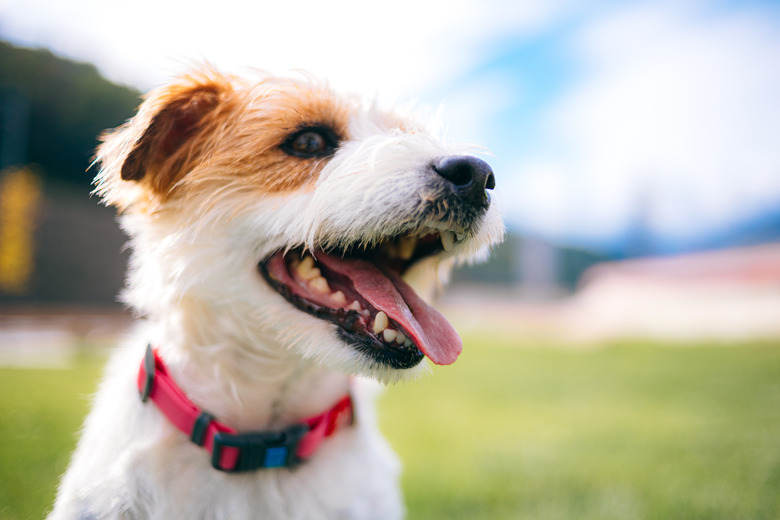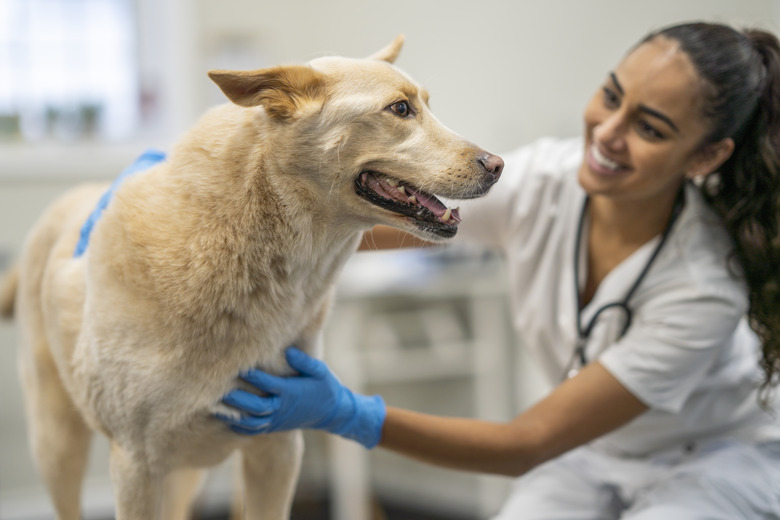Can Dogs Get Concussions? Signs, Symptoms, And Treatment For Head Trauma In Dogs
If your dog experiences any type of head trauma, they could have a concussion or another brain injury. If you see your dog get hurt, particularly to the point of being knocked unconscious, or if you observe signs indicating potential head injury, such as dilated pupils, uneven pupils (anisocoria), vomiting, or a shaky walk, take them to a veterinarian immediately. Permanent brain damage can result if a severe dog concussion isn't identified and treated promptly.
What is a concussion?
What is a concussion?
Concussions are a form of traumatic brain injury where the brain bounces back and forth within the skull. This adversely affects your dog's brain functions. Concussions don't usually threaten a dog's life, but sometimes, the side effects can be serious and may prevent a full recovery.
Can dogs get concussions?
Can dogs get concussions?
Yes, just like humans, dogs can get a concussion. Even though there are differences in how a human brain and a dog brain processes some things, like smell, the basic anatomical parts of a dog brain are similar to a human brain. The sizes of these parts, however, vary between dog and human.
Causes of dog concussions
Causes of dog concussions
The causes of concussions in dogs are similar to those for humans. Falls from a high elevation; being hit with a blunt object, like a baseball bat or swing; a car accident; running into a hard object; and head butts or kicks that result from rough play are the kinds of things that can lead to a concussion.
Small dogs with open fontanelles are particularly susceptible to concussions. Open fontanelles are openings in the skull resulting from incomplete closure of bony plates during normal puppy growth. Most dogs lose these soft spots by age 6 to 12 weeks. Some small dogs, such as toy breeds and tea cup breeds, American Maltese, and Chihuahuas, keep these fontanelles longer, making them more susceptible to head injury.
Symptoms of canine concussions
Symptoms of canine concussions
Symptoms of concussions can be difficult to notice because signs vary. Things to watch for are:
- Lethargy
- Vomiting
- Rigid or flaccid limbs
- Abnormal level of consciousness
- Loss of consciousness
- Disorientation
- Rapid side-to-side eye movement (nystagmus)
- Bleeding from the nose or ears
- Seizures
- Pupils look different or don't appear to dilate
- Trouble standing, walking, or maintaining balance
- Paralysis
These symptoms can also be signs of other serious health conditions, so prompt medical attention is necessary to properly assess the situation. The severity of a head injury can be difficult to judge without an exam because there might be unseen damage, like a skull fracture or internal bleeding and swelling. If your dog experiences head trauma, they could also have other secondary injuries.
Treating a canine head injury
Treating a canine head injury
Fear and pain can increase the chances of a dog going into shock. If you suspect a concussion or other head injury:
- Keep the dog calm if they're conscious and cover them with a blanket.
- Watch for signs of shock. This includes weakness, shivering, or convulsions; rapid breathing; and fast but weak pulse.
- Transport your dog to the veterinarian as quickly as possible with their head elevated above the hindquarters to reduce intracranial pressure.
- If your dog loses consciousness, keep them breathing by gently opening the mouth and pulling the tongue as far forward as you can to open the airway.
- If your dog stops breathing, perform CPR.
Effects of a dog concussion
Effects of a dog concussion
A concussion that leads to unconsciousness can be brief, or it can last several hours or even days depending on its severity. Your veterinarian will conduct physical and neurological exams to assess your dog. Blood pressure will also be checked because a head injury can cause low blood pressure. The method of treatment will be determined according to the factors that caused the concussion and the severity of the injury.
A concussion that leads to brain swelling can occur as late as 24 hours after an injury. It can be treated with diuretics, oxygen, and corticosteroids. Minor concussions, however, might need rest and observation, while severe cases could require surgery and IV fluids.
Preventing dog concussions
Preventing dog concussions
Pet parents can help prevent their dog from getting a concussion or traumatic brain injury by:
- Keeping an eye on your dog (especially small dogs) while playing or roughhousing with new dogs and larger dogs. Also be mindful when dogs are around other species, like horses or cattle, who may kick to express annoyance.
- Using a dog crate while traveling with your pet in the car. Other options are a dog car seat or a harness that can attach to a seat belt.
- Dog-proofing your house the way you might do before having a baby. This includes securing large pieces of furniture or floor lamps that can tip and fall on your dog's head.
- Having a fence around your yard so your pup can't escape into traffic.
The bottom line
The bottom line
A concussion is when the brain bounces back and forth within the skull after any type of head trauma. Just like humans, dogs can get a concussion. Some signs of a concussion are lethargy, vomiting, changes in pupil size, and disorientation. Though concussions in dogs are not usually life-threatening, they can still cause serious injury and potential permanent damage. Your dog's condition should be evaluated by a DVM right away if they experience any type of head trauma.



